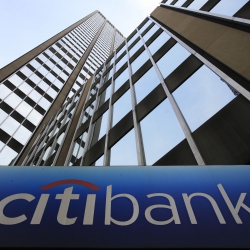
Citigroup’s decision hurts DraftKings and FanDuel, but not as badly as if other credit companies followed Citi’s lead.
Citigroup said it plans to block credit and debit card transactions on sites owned by FanDuel and DraftKings. The world’s biggest credit card lender said it shall enforce that strategy until New York state courts rule on the legality of daily fantasy sports in the state.
The decision is another hit for Boston-based DraftKings and New York-based FanDuel. Both companies have had to suspend operations in Nevada and Illinois in recent months. Both states are considering laws to license and regulate online daily fantasy sports, but any licensing decision could led to a legal domino effect, because they would be admitting their activity is gambling.
Bans on DFS in the United States
The Texas attorney general announced last month he thought DFS was illegal in Texas. Both companies appear willing to continue operations in the state, because the AG did not call on law enforcement to enforce a ban.
In New York, Attorney General Eric Schneiderman banned daily fantasy sports, saying he thought the companies were illegal under New York law. He also called for punitive damages in a lawsuit against the companies amounting to a potential $4 billion.
Operate in NY until May 2016
DraftKings and FanDuel won a decision in January which said they could continue operations in New York until the court decides on the case. That decision is likely to be announced in May. Because New York state represents a solid 10% of the companies’ business revenues, it was a key win.
The Citigroup decision to stop supporting DFS payments is there a key loss. Because Citigroup handles more payments than any other credit lending institution, it should have a major impact on operations. DFS contestants can find other payment methods, but credit and debit payments are trusted and handy. If they have no other credit card they trust to use, then they might not play on DraftKings or FanDuel at all. The New Jersey online gambling industry’s rollout showed what a lack of payment types can do to business.
PIX11 News Reports
A reporter from PIX11 News went to the Public House bar in Manhattan, to see what the sports fans though about Citibank’s decision. The fans, who were preparing for this Sunday’s Super Bowl, gave mixed reviews.
Zayed Mahmood, who said he was a sports fanatic, said the company should give people the right to use their cards where they choose. Mr. Mahmood said, “I’m a little disappointed, we’re all hardworking. However we want to spend it online with a credit card, I sort of hoped we could do that.”
Fan Reaction to Citigroup’s Decision
Sports fan Tom Staudt was sitting in a Manhattan sports bar when the PIX11 reporter asked him what he thought of the decision. Staudt was less concerned about the ban, and thought it was probably a good precaution for the company.
Mr. Staudt suggested financial institutions have to be wary of potential trouble sports. He said, “I think it makes sense. They’re afraid of a legal battle… and I think taking bets on a credit card is a dangerous game to play.”
Charles Little, who played college football with the Houston Cougars, was asked about the ban on DFS payments. Little said said it was no inconvenience to him and would switch to a different credit card. Little said, “Hey, I will Bank of America.”
Most fans are likely to have the same reaction Charles Little did. They’ll simply pull out another credit card. The Citigroup decision only becomes a major problem for DraftKings and FanDuel if other major credit lending corporations decide to follow Citi’s lead. If so, funding a DFS hobby might become a difficult proposition for many Americans.
Follow the Money
The source of money is always the way authorities try to shut down gaming operations they do not like. After the UIGEA, the poker boom was quieted in the United States by targeting the payment processors. State regulators do not necessarily have to target those companies. Make it iffy enough and uncomfortable enough from a legal standpoint and legit businesses are likely to pull out, fearing possible consequences in the future.
Citigroup made a business decision. FanDuel and DraftKings have to hope no other major credit companies do the same.
